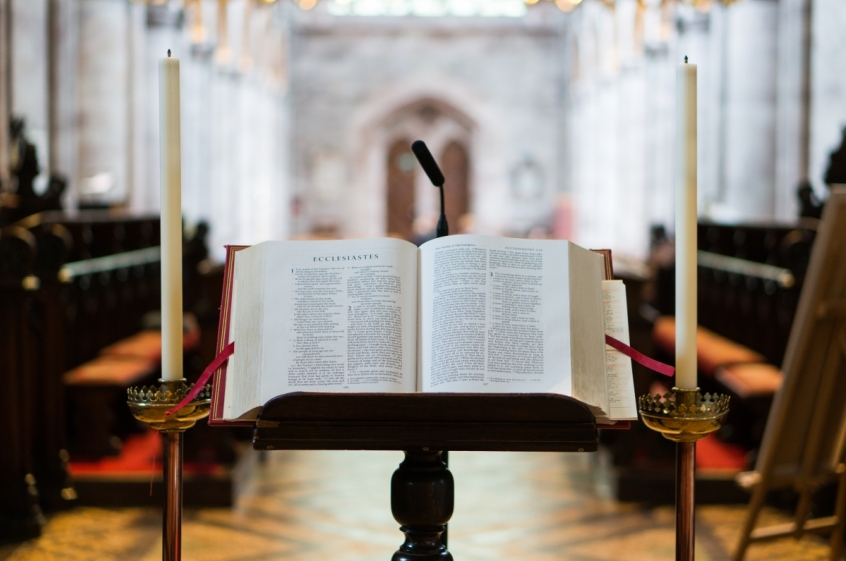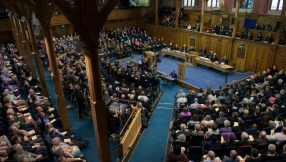We're British. We generally don't do congregational participation in sermons, unless we're at the charismatic extreme, where the amens will flow accordingly. The only exception to this is all-age services. Small, still-developing humans (ie children) haven't yet been properly enculturated into Britishness and so they like to answer questions and Be Involved.
It's interesting that the only religious practice that Jesus initiated amongst his followers was an action that required Being Involved. The Eucharist (or Communion as those of us in the lower echelons of church-person-ship call it) involves each of us being involved, using our bodies to hold, chew, swallow and digest the representation of Jesus' body and blood (I'm hoping we can slide straight past the transubstantiation conversation). In light of this, it's interesting how horrifying the idea of asking adults to be involved in a sermon can be.

In a recent sermon, I created a space for people to reflect on and respond to what I was saying. Given that my church is averagely charismatic and that it wasn't an all-age service, I was cautious about how much involvement to require of my gathered siblings in Christ. Preaching on how John the Baptist sent his followers to check on whether Jesus really was the Messiah, I suggested that Jesus's answer about how he was bringing transformation was still relevant to us. On arriving in church, each person had been given a Post-it note stuck on their notice sheet (along with a pen). While a song played, I invited them to write about an experience they had of Jesus transforming their life. Asking them to write their email address on the back, I explained that I would send them a typed-up document with all the experiences given. I used the collection as an opportunity also to collect their Post-its, limiting the need for people to leave their seats, whilst also creating a space for reflection and action.
After the service, I displayed the Post-it notes so they could be read over coffee, and later that day typed up all their answers and emailed them out. I was also able to use some basic video software to make a video with their answers on. So many people in the congregation were hugely encouraged by the activity, particularly receiving the list and video later. Very often we see preaching as an isolated act that will hopefully partner with God in bringing transformation to people's lives. But perhaps it doesn't have to be that limited. How can we bring in some form of response or interaction? Are there ways we can ensure the activity doesn't move people too far out of their comfort zone, but also gives them an opportunity to respond and build their faith? Jesus certainly understood that we need a practice that involves actively responding to our belief in him; initially through baptism and repeatedly through Communion.
My sermon activity took more work than simply preparing the sermon, but the impact on people was amazing. It turned out that so many people had experiences of God's transformation, but had not had a corporate opportunity to share it. By asking for reflection and interaction, members of the congregation were able to grow in their faith and bring encouragement to others within the community. They might not be ready for improvised role play (oh, the horror!) but as a community, it created a wonderful space for God to work in all of our lives.
Natalie Collins is an authorised preacher within the Anglican tradition. She is a gender justice specialist, director of the DAY Programme, organises Project 3:28, works in the Christian Feminist Network collective, and founded the Fifty Shades is Domestic Abuse campaign. She is on Twitter @God_loves_women
This article can be read in Preach magazine's latest issue, Vulnerability in Preaching; visit preachweb.org













